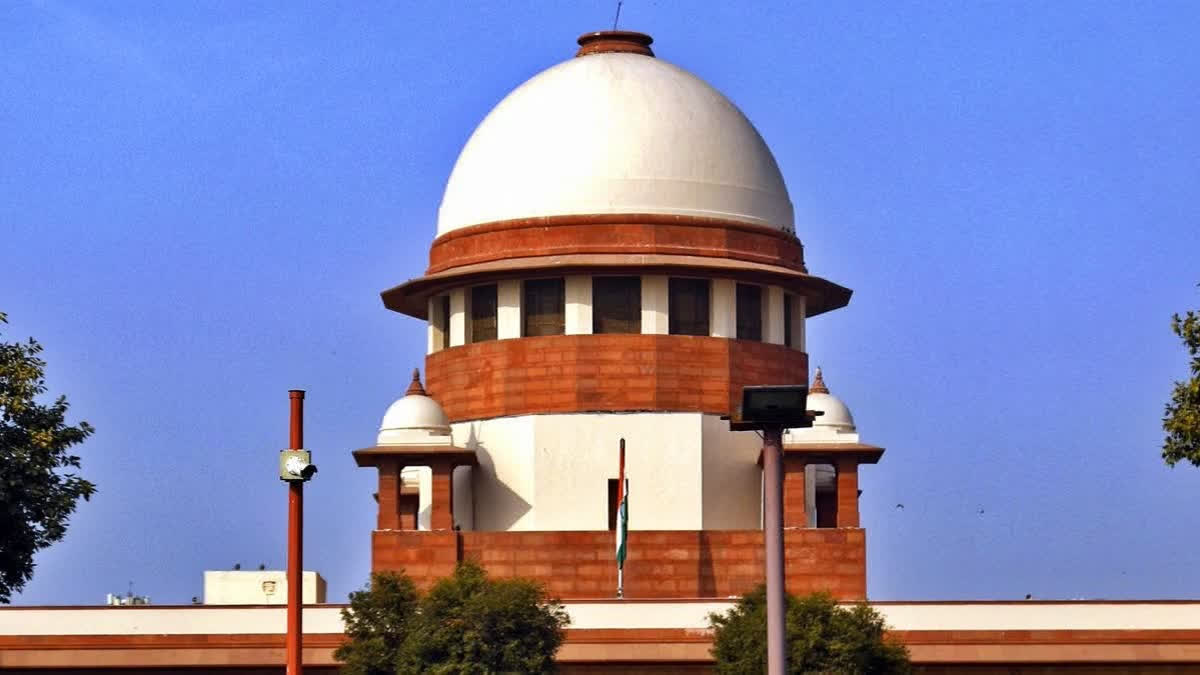New Delhi: Senior advocate Rajeev Dhavan, appearing on behalf of the Jammu and Kashmir People’s Conference, on Wednesday told the Supreme Court that the autonomy of states is fundamental to the Constitution and diversity needs to be treasured and not taken away for the quest of uniformity.
He also stressed that powers under President’s Rule cannot be used to amend the Constitution while arguing against the abrogation of Article 370. A five-judge constitution bench headed by Chief Justice of India D Y Chandrachud and comprising justices S K Kaul, Sanjiv Khanna, B R Gavai, and Surya Kant is hearing a batch of petitions challenging the abrogation of Article 370, which bestowed special provision on the erstwhile state of Jammu and Kashmir.
Dhavan submitted that autonomy is fundamental to our constitution and not alien to the Constitution and stressed that without provisions outlining the autonomy given to states, India would have collapsed. He said the quest for uniformity is not at the heart of the Constitution and added that Kashmiri is recognised as an official language under the Eighth Schedule of the Constitution and asked, what is the status of Kashmiri now? Has it disappeared from the Eighth Schedule?
Citing Article 239A of the Constitution (Parliament’s power of creation of local legislatures or Council of Ministers or both for certain union territories), Dhavan said it was not adhered to while converting the Jammu and Kashmir into two union territories – one with a state legislature and one without, and insisted that what was done with Delhi, should have been done. Dhavan stressed that diversity needs to be treasured not wished away in the quest for uniformity and citing Northeast, he said India would have collapsed in the absence of all these autonomies.
Dhavan argued that powers under Article 356 (President’s Rule) have been repeatedly misused and it is not a power given to amend the Constitution. He said J&K is not a dead horse to be flogged and it is very important to understand autonomy in Indian federalism. Dhavan stressed that the Instrument of Accession (IoA) is related to external sovereignty, which is lost, but the internal sovereignty of J&K was not lost.
The Chief Justice pointed out that normally when the legislature uses the word ‘means’ and ‘includes’, it is an indication of expanding the power and when the Constitution says ‘make incidental and supplementary provisions’ and then specifies the term ‘including’, it might be widening the ambit of the earlier part.
The bench further queried Dhavan, suppose the President in a proclamation suspends the operation of any provision of the Constitution, could that be challenged on the ground that it is not incidental or supplemental? Or are these words widening the ambit of the first part of Article 356(1)(b) of the Constitution?’ Dhavan contended that power exercised under Article 356(1)(c) of the Constitution cannot dilute a mandatory provision given under Article 3.
The bench queried Dhavan, can Parliament enact a law during the subsistence of Article 356? Parliament cannot exercise powers specifically granted to state legislatures, like altering the boundaries of the state. Dhavan will continue to argue the matter in the afternoon session.
Also read: Difficult to say Article 370 can never be abrogated, J&K’s sovereignty completely ceded to India: SC



